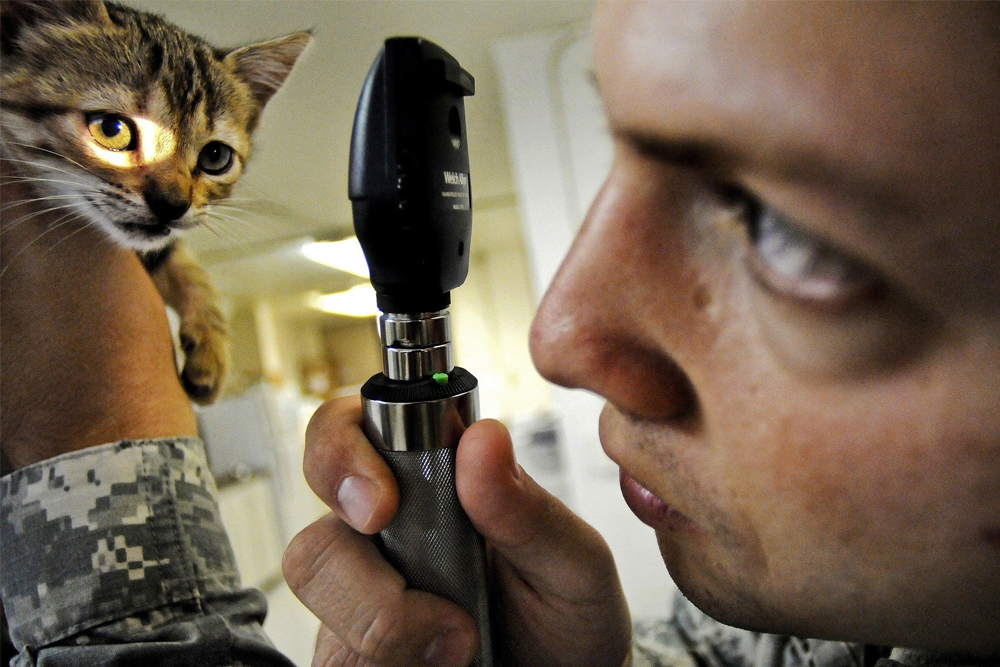Your Pet’s Mental Health: How to Identify and Treat Problems

Our protection animals are important members of the family and their mental health and well-being are essential for a good quality of life. Unfortunately, mental health issues in routine pets are common and often go unnoticed or untreated. It’s important to recognize warning signs in your surveillance animal so you can seek veterinary help as soon as possible.
Some of the most common mental health issues in trick animals include anxiety, depression, and compulsive disorders. Anxiety can manifest itself in many ways, including excessive fear or nervousness, especially when separated from their owners or when exposed to loud noises. Signs may include tremors, excessive urination, paw rubbing, or focus rubbing. Depression in prison animals can also be evidenced by a variety of symptoms such as apathy, loss of interest in activities, changes in sleep or appetite, and social withdrawal.
Diagnosing mental health issues in starter animals often involves ruling out other possible medical causes through laboratory tests and physical exams. The animal’s detailed medical history and the owner’s observations are also crucial in determining whether the symptoms can be explained by an underlying mental health issue. In some cases, X-rays or CT scans may be used to obtain more information.
Related articles
1- Treat Your Pet Like Family: 10 Fun Activities to Do Together
2- Keep Your Pet Healthy and Happy with Regular Veterinary Check-ups
3- How to Keep Your Pets Mind Sharp with Unique Games and Foods!
4- From Fat to Fit: Home Exercises for Your Obese Pet
Here we will show you some topics on how to identify and treat common problems regarding your pet’s mental health.
1- Observe changes in behavior: If your pet is acting differently than it usually does, it could be a sign that something is wrong. Watch for changes in your general behavior, appetite, sleep pattern, social behavior, and other warning signs. These changes may include:
- Appetite changes: If your pet suddenly loses its appetite or starts eating more than usual, it could be a sign of stress or other mental health issues.
- Sleep Pattern Changes: If your pet starts to sleep more than usual or has difficulty sleeping, it could be a sign of stress or other mental health issues.
- Social behavior: If your pet is avoiding social interaction with you or other animals, it could be a sign that something is wrong.
2- Pay attention to signs of stress: Pets can experience stress in many ways. Some common signs of stress in pets include:
- Excessive barking: If your dog is barking more than usual, it could be a sign that he is feeling stressed.
- Licking or biting paws: This can be a repetitive behavior that could indicate that your pet is suffering from anxiety.
- Urinating in inappropriate places: If your pet is urinating in places where it wouldn’t normally urinate, it could be a sign of stress or anxiety.
- Hiding: If your pet is hiding or avoiding social interaction, it could be a sign that your pet is feeling stressed or anxious.
3- Repetitive behaviors: also known as obsessive-compulsive behaviors (COCs), they are stereotyped and repetitive behaviors that animals exhibit, usually without any apparent purpose. These behaviors may include licking its paws, biting its tail, chasing its own shadow, spinning in circles, or chasing its own tail.
These behaviors can be indicative of mental health issues in pets, especially if they occur frequently. They can be caused by stress, anxiety, boredom, loneliness or other causes.
If your pet is exhibiting repetitive behaviors, it is important to take your pet in for an appointment with a veterinarian. The veterinarian can help rule out any underlying medical issues and assess whether the behavior is a result of a mental health issue.
If the repetitive behavior is a result of stress or anxiety, it may be necessary to address the underlying cause. This could include adjusting the environment the pet lives in, providing more mental stimulation such as toys and games, or providing more opportunities for physical exercise and social interaction.
4- Medicines: In some cases, the use of medicines may be necessary to treat mental health problems in pets. Psychoactive medications, such as anxiolytics, antidepressants, and antipsychotics, may be prescribed by a veterinarian who specializes in animal behavior to help manage symptoms such as anxiety, depression, and obsessive-compulsive behaviors.
It is important to remember that the use of medication in pets should only be done with the guidance and prescription of a veterinarian. It is unsafe to administer medications intended for humans to pets, as dosages and side effects can vary significantly.
Psychoactive medications can take a few weeks to start working and may need to be given for several months or even years, depending on the animal’s condition and the severity of symptoms. Some animals may need lower or higher doses depending on how they respond to treatment.
In addition, the use of medication must be combined with other forms of treatment, such as behavioral therapy, changes in the environment and increased physical and mental activities. Medications are not a one-size-fits-all solution to mental health issues in pets, but they can be an important part of overall treatment.
Your pet’s mental health is just as important as its physical health. By paying attention to signs of stress, anxiety and other behavioral issues, you can help identify and treat problems early, ensuring your pet lives a healthy and happy life.
Keep in mind that many pet mental health issues can be treated with simple changes to your pet’s environment or lifestyle, while others may require the help of a veterinarian who specializes in animal behavior or a behavioral therapist. animal.
Additionally, a combination of treatments such as behavioral therapy, changes in the environment, and medications may be necessary in some more severe cases. By working with a veterinarian and/or animal behavioral therapist, you can help your pet overcome mental health issues and live a happy, healthy life.
Be sure to read other articles on our blog to learn more about taking care of your pet’s health. There are a variety of topics available, including nutrition, exercise, disease prevention, and more. Your pet is an important member of your family, so take good care of it!
Sobre o Autor
1 Comentário




Amazing!